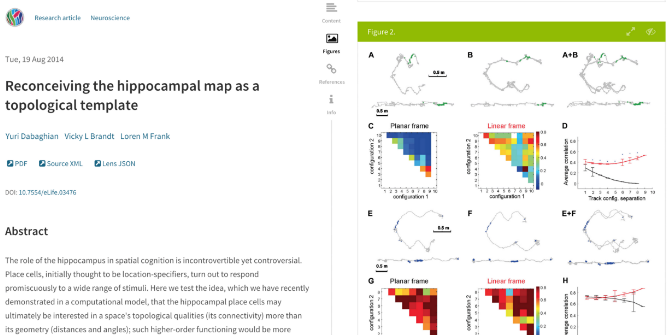Research has an important role to play in the creation of good policy. However, academics often struggle to communicate their research in a language that politicians understand. Naomi Eisenstadt CB draws on over thirty years of experience at senior levels of government and policy, to outline what researchers need to know to influence government and three steps for putting this into practice. There are structural reasons why academics, politicians, and civil servants approach problems from very different starting points. Understanding how the workplace structures of government differs from academia can enable researchers to understand policymakers’ priorities and use this to achieve impact.
Academics have an important role to play in shaping government policy, and some have played a seminal role. Much of the current policy on early years dates back to research originally commissioned by a Conservative Government and then continued under Labour. However, academics sometimes have difficulty in communicating research findings to policymakers.
What academics need to know
Different workplace structures, different priorities
Academics achieve promotion by the ability to produce articles in reputable journals that are peer-reviewed and by the ability to attract research funding. Research on the same issue sometimes results in conflicting findings, so great attention is paid to research methodology: qualitative or quantitative, randomised control trials, natural experiments, observational studies, large scale data collection, case studies and so on. Peer assessment from colleagues in other universities is critically important to advancement. Self-esteem is strongly tied to the views of others in the same field from universities all over the world.
Civil Servants operate in a very different environment. The civil service structure is hierarchal, with a very clear grading structure, formal processes for promotion for different layers of staff. Promotion in the civil service is reliant on two key skill sets: policy skills and handling ministers. Unlike academics, policy skills are assumed to be transferable. There are some subject specialists within the civil service, and increasingly, skills of operational delivery and project delivery are also valued, but it is usually policy skills that get people up the ladder.
Policy skills are demonstrated by effectiveness across a wide range of issues. Achieving promotion to senior levels requires a civil servant to achieve excellence in more than one department. Policy skills are not about the kind of in-depth knowledge of a subject area that typifies the lifetime of an academic. Policy skills are about being able to absorb relevant high-level information quickly, make informed judgements and advise ministers on the most effective way to implement public commitments made to voters. The skill of working with ministers is about being able to communicate complex issues, offer options for ways forward, being honest about risks, but not in a manner that looks resistant to the ministers preferred direction of travel. The key message for academics is that the most talented civil servants in policy skills are likely to move around departments fairly often.
Policy skills are not about the kind of in-depth knowledge of a subject area that typifies the lifetime of an academic. Policy skills are about being able to absorb relevant high-level information quickly, make informed judgements and advise ministers on the most effective way to implement public commitments made to voters.
Ministers have a much more tortuous climb to the top than either civil servants or academics. Most people who enter politics do so because they want things to change. At each rung of the ministerial ladder power for change is increased, but like civil servants, it often requires appointments in several departments to achieve cabinet status. The Prime Minister considers talent in ministerial appointments, but he/she will also be rewarding loyalty, popularity within the party and with the wider electorate. Because it is within the PM’s gift to reshuffle the Cabinet and the ministerial team at will, being a minister is an insecure job. Climbing the ladder is precarious, and most politicians are intensely ambitious. For those who make the lower rungs of the ladder, making an impact fast is critical. The timescale is not just about the election cycle, it is also about how long in a particular job is enough to impress the PM and get the next step up.
Understanding the structure of government can help academics achieve influence
The message for academics is that the changes of ministers and the moving of civil servants is inherent in the system. Both ministers and civil servants are more likely to get promotion if they manage different policy areas. Moreover, ministers are impatient, not because they are naturally difficult people. They are impatient because they are ambitious and need to demonstrate progress over short time scales. From the total number of ministers, only a small number will make it to the Cabinet. In most industries if one is ambitious and can see the next layer up in one’s own institution is not possible, one will look to other organisations in the same industry. Politicians cannot decide to change countries.
The message for academics is that the changes of ministers and the moving of civil servants is inherent in the system.
Policy is informed by evidence, but it is also informed by ideology, public mood, and the likelihood that change will be noticed within a reasonable timeframe. Assuming that politicians who do not follow the evidence are not intelligent enough is missing the point. Elections give politicians a mandate which is constantly tested by the mood of the public. Moreover, the evidence changes over time and is often contested by different academics. Hence in making policy, civil servants must be able to present the evidence in ways that support the general direction that ministers want. Ministers will want evidence that is unequivocal and will have very little interest in how the evidence was collected. For academics, unequivocal evidence is almost impossible, and methodology is crucial.
What academics need to do: Getting it right for civil servants and ministers
1.Understand the policy context and find areas of agreement and/or improvement.
Often the most difficult task is trying to change policies with which you fundamentally disagree. Academics have their own political views and personal ethics and values. Outright opposition and providing evidence to strengthen the arguments of independent organisations seeking changes to policy can be useful. However, some of the most effective policy influencers are working with the grain of what a minister wants and trying to make it better. In any particular area it is vital to understand the policy context and find areas of agreement and/or improvement.
Policy is informed by evidence, but it is also informed by ideology, public mood, and the likelihood that change will be noticed within a reasonable timeframe.
2.Establishing relationships
Relationships are important. For any minister, there will be a team of civil servants working on the policy area. Most of the hard work is done by junior and middle-ranking ministers and teams under a deputy director. So, it is vital to know who the deputy director is for your area, meeting with them, if possible, regularly and keeping informed as policy is developed. It can be helpful to write a note of congratulations to new ministers, and always copy the note to the relevant deputy director. Civil servants will be working to help the minister craft new policies. Try to provide them with new ideas and solutions to problems. Basically, help them do their job more effectively. It is also helpful to make alliances with academics in similar fields and try to come up with a core set of key messages that are agreed. This is particularly important for campaigning voluntary organisations but is true for universities as well. Discrediting the research of others only makes ministers and civil servants feel that no one can be believed.
3.Clear Communication
Any written material aimed at civil servants or ministers requires a different style from journal articles. The key message is: keep it brief, start with a summary of key findings, then how they could be important for policy. Leave methodology for the appendix. Limit as much as possible the caveats about findings. If you are publishing material critical of a particular policy, and it is likely to get media attention, it is very helpful to let the relevant official know in advance.
From knowledge to influence
Much of what is in this note will be widely known among academics. What I have tried to do is explain some of the structural reasons that academics, politicians, and civil servants approach problems from very different starting points. Constructive relationships can overcome these barriers and understanding the barriers may help in establishing constructive relationships.
This post has been adapted by the author from a note that was commissioned by Professor Iram Siraj, Department of Education, University of Oxford, and published on Transforming Society
Photo by Jordhan Madec via Unsplash.








